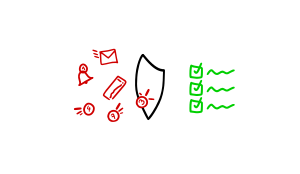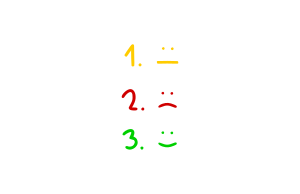How to work from home and not go crazy

Many people dream of working from home (WFH).
But expectations don’t always match the reality.
That’s why a lot of people quickly give up on WFH and start going into cafes, shared space offices, libraries. But sometimes not even this is possible and instead of escaping the problem, we have to deal with it.
Both of us work from home regularly and we can testify how this dream can soon turn into 2 different kinds of hells:
The procrastination hell
We get into this kind of hell when we do nothing - we start to procrastinate and get into the vicious cycle of procrastination.
Trust us, you don’t want to slip into this vicious cycle because you start hating yourself, get disgusted and your well-being deteriorates. Later, your confidence suffers, you start feeling helpless which can lead to depression.
The workaholic hell
The second one happens when we start working all the time. We wake up, we start working and end before we go to bed or sometimes we even go to bed later.
It’s because we spend the whole day in the same room and we lose sense between work and leisure. This sounds productive. But it’s often not sustainable and when we’re deprived of fun/leisure for too long, we start to dread work, which seems like a giant mountain of drudgery always looming ahead of us. It doesn’t take long and we start to procrastinate. Then we usually slip into the first hell of procrastination.
In both hells, you can also start experiencing social isolation which if you’re not used to being alone can make you go crazy pretty quickly.
Therefore, to stay productive and sane, it’s important to give WFH a thought and create a daily rhythm.
This is what years of WFH experience taught us:
The most important steps to keep you sane
1. Plan when your workday begins and when it ends

This protects you from both kinds of hells.
Let’s say you decide to work from 9 AM to 12:30 PM and then from 1 PM until 5:00 PM. Why create an explicit schedule like this?
- It prevents you from working until the evening
- When you have limited time, you use it better and you stick to a regime. Without a clear daily rhythm, you can spend your morning reading news thinking you can catch up later. This leads to being behind and then procrastinating more.
- Having a clear regime also saves you from perfectionism because you have to have something done by the end of your work session instead of trying to improve something more and more ad nauseum.
- You will ensure your brain that you’re not feeling like your life is just one infinite work slog. We’re scared of doing boring work forever and not having any fun . When your brain knows there is an end to work, it has an easier time to start working.
Try to stick with the plan. If you do, you will get confident in a few days, and then you can adjust it, or play with it however you want or how your work allows you.
2. Plan your leisure
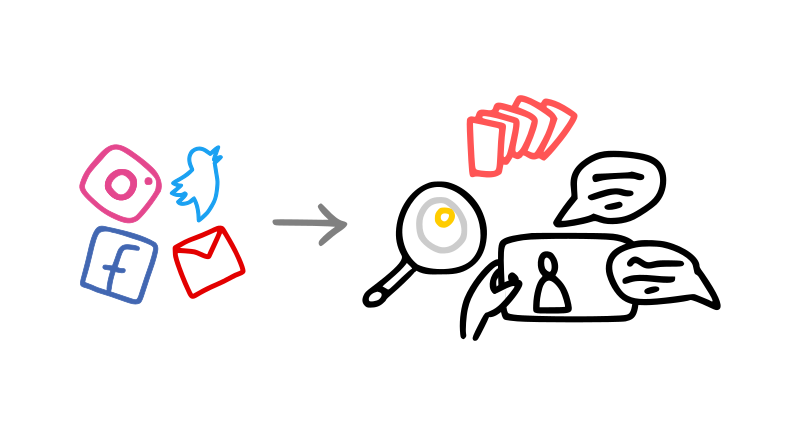
Why plan leisure?
When we don’t have any ideas for what we’ll do once we’re done with work, it’s too easy to just fill the time with endless social media scrolling or watching random YouTube videos until 3AM.
As we mentioned here, before you start working, plan what you will do after you finish.
Remember:
Leisure doesn’t have to be passive staring into screens and passive consumption like watching Netflix, Youtube, Twitch or social media.
When you put just a bit of thought into your leisure, you can do some incredibly fun things.
When’s the last time you played a board game, or a card game? They are fun and allow you just enough time to chat in between rounds with your friends or family.
Be more mindful about using your leisure time.
Here are some examples what you can do:
- Schedule a call with friends - to keep you from being socially isolated
- Go to learn something new - you now have the time.
What have you always wanted to learn, but never had time for? Juggling? Card throwing? Dancing? Try that! - Try out a new recipe - you can take your cooking to the next level, or learn to meal home prep.
- Read a book.
What’s an interesting subject you want to read about? - Workout - you probably sit even more than usual when working from home.
Even if you don’t want to do a full workout, you could just place a yoga mat in the middle of your room to remind you to stretch every time you get up from your desk. - Craft something or change your room decor.
Could you create a simple poster for your room? Print out a quote? Build a simple coat hanger?
Again this step will protect you from both the hell of procrastination and the hell of workaholism. When you have scheduled a call at 5 PM you simply can’t keep working. But also if you know, you’re going to call at 5 PM, you can’t waste the first half of the day because then you won’t have time for work.
You want to build on the principle that leisure is a reward for your work. Plus, leisure can be a time for letting your mind rest or be creative.
3. Keep distractions away
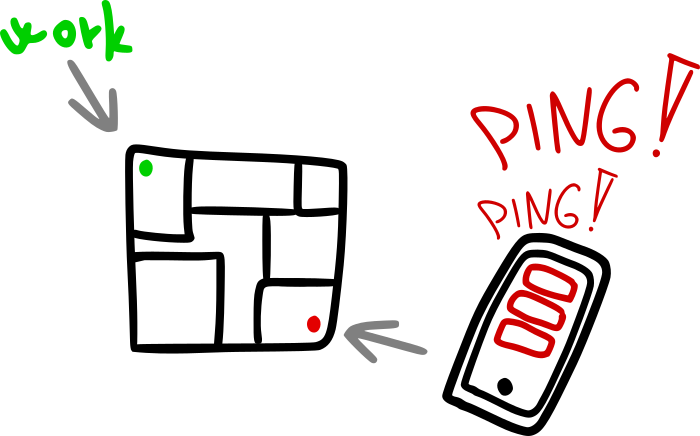
Oh boy, this is a big one. When you’re in an office, you have some external pressures going and other people can probably see what you’re doing.
Most of us want to work, but it’s easy to slip into distractions and mindlessly waste our time. And then we realize how we just wasted the last 3 hours of our life on Reddit/Twitter/Youtube and get disgusted with ourselves.
Procrastination isn’t always about escapism, the internet can be so captivating that we totally lose control of ourselves and don’t even think we’re doing something we shouldn’t. There are the 3 most usual distractions:
- Other people and background noise
This is probably the simplest one:
Put on headphones (ideally noise-cancelling) or earphones and keep the noise out by listening to brown noise or lofi beats - it won’t distract you to focus. - Phone
You have to ensure that you won’t be mindlessly opening social media and get sucked in. The simplest rule to follow is to put your phone into another room. We’ve talked more about how to stop checking your phone here. - Personal computer or laptop
If you’re working on the PC, you have to be savage about blocking distractions. You have to block them deliberately. We’ve talked about it here.
4. Start when you decided to
The fourth tip to make WFH work for you is to start when you decided to.
When you get into the habit of starting when you said you would, you will get a sense of momentum and you will get much more productive and confident in your ability to accomplish things. And you start to enjoy work.
On the other hand, if you frequently fail to start when you said you would, your life can fall into pieces quickly because most of us aren’t used to focusing at home.
If that is something you struggle with, we described what to do when you have trouble starting. Or if you have real issues with procrastination, check this out.
5. Dress for work

It might seem ridiculous, but it really helps. It’s difficult to keep using the daily regime when you stay the whole day in your pajamas. Productivity is connected to how we take care of ourselves.
Don’t stop shaving, don’t stop taking showers.
Do the normal routine as you would do before going to work or to school.
Then ideally, when you stop working you can switch again into your home clothes. This will help you distinguish between your work/leisure time.
6. Enjoy your leisure and the time saved by not having to commute
You want to get into a productive cycle: Get work done → Build your confidence you can get things done → get deserved leisure → get more work done.
This is, of course, the ideal productivity cycle.
But most of the people fail in WFH. If you don’t, you can finally enjoy the benefits it offers and what we dream about.
7. When you don’t start the day right, don’t give up!
We’re not perfect. We’re human and probably even you will fail while WFH. That’s a fact. It’s difficult if you’re not used to it..
But we ask you to not say “what the hell” and waste the rest of your day. Instead read this.
Additional steps
We know these steps are not possible for everyone but if you have the chance, try them, they will help you immensely.
8.Dedicate a single place to work and nothing else.
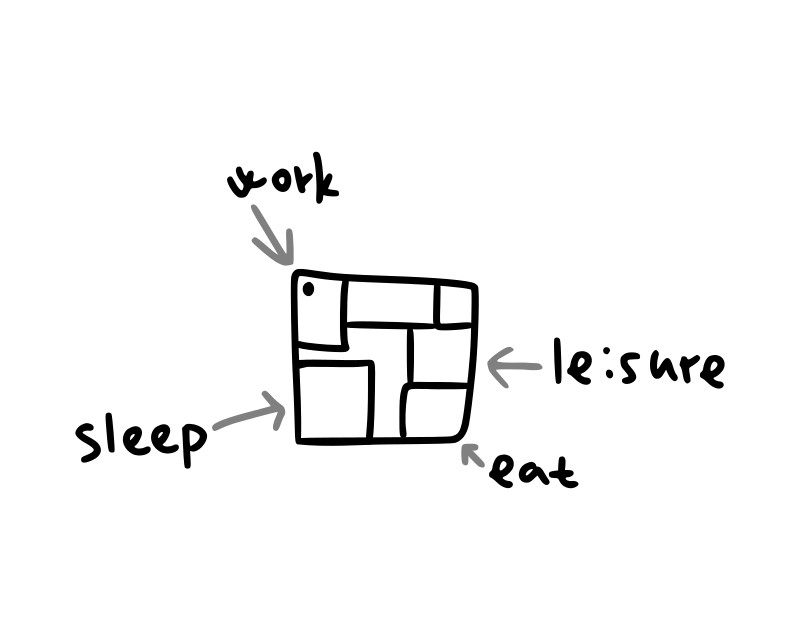
With dressing up and this step, it’s like you went to work, sit in one place, do your work. Then when you finish, you literally leave the work by leaving the place and changing your clothes.
It sounds simplistic or even dumb, but it helps.
The more distinguished you can make the spot for work from your leisure, the better it will be. Having a dedicated spot for work sends your brain a clear signal:
“I’m here? Okay, now it’s time to focus.”
9. Have 2 different devices - one for work, the other for leisure
Pull out your old laptop, or just use a tablet for your leisure.
On the work device, you simply bar your access to social media by blocking them and/or not logging in.
If you don’t own two devices, instead set up 2 different profiles on your PC.
If this isn’t possible, use at least 2 different browsers to separate work and leisure.
That’s it!
It’s not that complicated, but it does take some time to figure out what works best for you.
So here it is:
- Plan when your work day ends
- Plan your leisure
- Keep distractions away
- Start when you decided to
- Dress for work
- Enjoy your leisure and the time saved by not having to commute
- When you don’t start the day right, don’t give up!
- Dedicate a single place to working and nothing else (bonus)
- Have 2 different devices - one for work, the other for leisure (bonus)
You don’t need to do all of those right tomorrow, but be sure to take action. Anything is better than just consuming information and not doing anything.
And please, if you know about anyone that needs help in this regard, share this.
Got a suggestion or a story about how you ensure working from home (WFH) works well for you? Hit us up on Twitter or by email (info@deprocrastination.co) and we will add it below.


